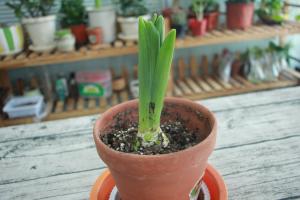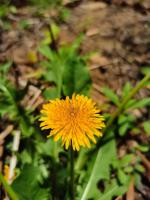Why Can't Plastic Plant Pots Be Recycled?
With the rise of eco-friendliness, people are becoming more conscious about the impact of waste on the environment. One of the common household waste products is plastic plant pots, which cannot be recycled. In this article, we explore the reasons why and what can be done about it.
What Are Plastic Plant Pots Made Of?
Plastic plant pots are made of a variety of materials including Polypropylene (PP), Polystyrene (PS), and Polyethylene (PE), which are all types of plastic. These plastics are often cheaper to produce than using traditional clay or terracotta materials. However, they come at a cost to the environment.
Why Can't Plastic Plant Pots Be Recycled?
Plastic plant pots cannot be recycled because they are too difficult to process. The plastic used in the production of these pots has a low melting point, which means that it melts at a lower temperature compared to other plastics. This makes it difficult to separate from other plastics during the recycling process.
The shape and size of plastic plant pots also make them difficult to recycle. These pots are often odd-shaped, which makes them challenging to fit in recycling machines. Moreover, they come in different sizes making it challenging to process them on a large scale.
What Can Be Done About It?
There are several things you can do about the plastic waste from plant pots:
Reuse - Instead of disposing of plastic plant pots after use, consider keeping them for future use. These pots can be reused for other plants.
Upcycle - Get creative and transform your old plant pots into something new. You can paint them or add decorations to create unique decorative pieces.
Biodegradable Pots - Another option is to use biodegradable pots. These pots are made of materials that can decompose, such as coconut coir, peat, or paper. These materials are eco-friendly, and they provide the perfect environment for the growth of plants.
Recycling Facilities - There are some facilities that can recycle plastic plant pots. Check with your local recycling facilities to determine whether they accept plastic pots or not. If they do, ensure that the pots are clean and free of soil and any other debris.
Conclusion
Plastic plant pots are a significant contributor to plastic waste. While they cannot be recycled, there are several things that you can do to reduce their impact on the environment. These include reusing, upcycling, using biodegradable pots, and looking for recycling facilities that accept plastic pots.
As individuals, our actions play a significant role in how we impact the environment. By taking the time to assess our plastic usage, we can make a real difference in reducing plastic waste.

 how many times do yo...
how many times do yo... how many planted tre...
how many planted tre... how many pine trees ...
how many pine trees ... how many pecan trees...
how many pecan trees... how many plants comp...
how many plants comp... how many plants can ...
how many plants can ... how many plants and ...
how many plants and ... how many pepper plan...
how many pepper plan...






























